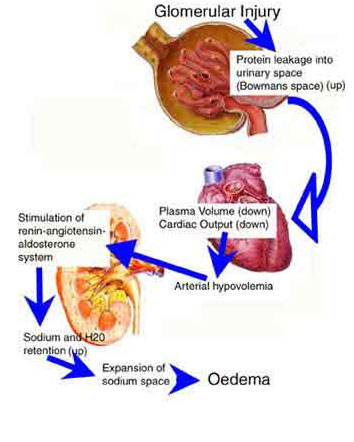|
|
||||||||||||||||||||||||||||||||||||
Disease Conditions
- Abscess
- Acne
- Addiction
- Adenoid Hypertrophy
- Allergic Rhinitis or Hay Fever
- Alopecia Areata
- Alzheimer’s Disease
- Amoebiasis
- Anxiety
- Asthma
- Backache
- Bed-Wetting-Enuresis
- Brain-Tumour
- Cataract
- Cirrhosis of Liver
- Conjunctivitis
- Constipation
- Dengue
- Depression
- Diabetes Mellitus
- Diseases of Prostate
- Eczema
- Epilepsy
- Erectile-Dysfunction
- Gallstones
- Goitre
- Gynaec
- Hepatitis
- Hepatitis-a
- Hepatitis-b
- Hepatitis-e
- Hyperthyroidism
- Hypothyroidism
- IBS - Irritable Bowel Syndrome
- Infertility
- Infertility FAQ
- Male Infertility
- Male Infertility FAQ
- Women Infertility
- Lichen Planus
- Lipoma
- Meningitis
- Menstrual-Disorders
- Migraine
- Molluscum-Contagiosum
- Nasal-Polyps
- Neoplasm
- Nephrotic Syndrome
- Neuralgia
- Osteo Arthritis
- Otitis
- Piles or Hemorrhoids
- Premature-Ejaculation
- Psoriasis
- Rheumatoid Arthritis
- Ringworm
- Schizophrenia
- Sinusitis
- Spondylitis
- Styes
- Tarsal Cyst-Chalazion
- Tonsilitis
- Typhoid
- Urinary-Tract-Infection
- Urticaria
- Vertigo
- Vitiligo
- Warts
Auroh Health Horoscope
Disease A - Z > Nephrotic Syndrome > Homeopathic treatment for Nephrotic Syndrome
Homeopathy treatment for Nephrotic Syndrome
|
||||||||
Nephrotic syndrome is a sign that your kidneys are not working right. You have nephrotic syndrome if you have high levels of protein in your urine, low levels of protein in the blood, and high cholesterol.
Nephrotic syndrome is not a disease. It is a warning that something is damaging your kidneys. Without treatment, that problem could cause kidney failure, so it’s important to get treatment right away.
Nephrotic syndrome can occur at any age, but it is most common in children between the ages of 18 months and 8 years
What causes nephrotic syndrome ?
There are tiny blood vessels in the kidneys that filter waste and extra water from the blood. When these filters are damaged, you get nephrotic syndrome. Protein helps move water from the tissues into the blood. Healthy kidneys keep the right amount of protein in the blood. Damaged kidneys let protein slip from the blood into the urine. Without enough protein in the blood, fluid builds up in the tissues. This can cause swelling
Many things can cause this blood vessel damage, including diabetes, lupus, infection, certain cancers, and some medicines. Sometimes doctors don't know what causes it
A type of kidney disease called minimal change disease (also called nil disease) causes most of the cases of nephrotic syndrome in children. Doctors don't know what causes minimal change disease
 |
To know what Nephrotic Syndrome is, let us first briefly understand the structure and function of the kidneys
The kidneys are two bean-shaped organs found in the lower back. They are about the size of a fist. The kidneys are like body’s filters, which remove impurities or wastes from the blood via the urine and return the cleaned blood back to the body. Each of these kidneys has millions of units to filter blood called glomeruli. Glomeruli are tiny blood vessels that form a meshwork in the kidney through which blood is strained to filter out excess water and waste products
When the kidneys are working well, they clean the blood and get rid of waste products, excess salt, and water. When diseased, the kidneys may get rid of things that the body needs to keep, such as proteins and blood cells
The normal architecture of the glomeruli prevents a majority of protein from getting filtered into the urine and this holds protein in the blood. Protein help the blood soak up water from tissues. But kidneys with damaged filters may let protein leak into the urine. As a result, not enough protein is left in the blood to soak up the water. The water then moves from the blood into body tissues, producing swelling. This swelling may be most noticeable around the eyes, legs, hands, belly, etc.
Normally, a person loses less than 150 mg of protein in the urine in a 24-hour period. However, patient of Nephrotic Syndrome will loose more than 3.5 grams or more of protein during a 24-hour period, or 25 times the normal amount. As body looses this vital protein in the urine, this results in drop of protein in the blood called hypoproteinemia or hypoalbuminemia, another cardinal feature of Nephrotic Syndrome
Hypercholesterolemia (high blood cholesterol) is common in Nephrotic Syndrome. In addition to albumin, other important enzymes involved in cholesterol metabolism, slip through the glomeruli, which contribute to high blood cholesterol
How is nephrotic syndrome diagnosed ?
Doctors diagnose nephrotic syndrome using blood and urine tests.
You may have other tests to see what is causing nephrotic syndrome. Adults may also have a kidney biopsy, in which the doctor takes a sample of tissue to test for cance
Auroh Advanced Homeopathic treatment for Nephrotic Syndrome
homeopathy has a well-defined and promising role to play in for the treatment of Nephrotic Syndrome. Experience based and evidence proven results indicate that the homeopathic treatment can offer following results
- It can reduce the frequency of attacks of Nephrotic Syndrome
- It can reduce the duration of each episode of Nephrotic Syndrome
- It can reduce the attacks of frequent colds and infections, which in turn helps a great deal towards better control
- It can help in reducing the dependency on cortisone and cyclosporine
Homeopathic treatment is very strongly suggested in various stages of Nephrotic Syndrome
View Nephrotic Syndrome case study | Read Nephrotic Syndrome Testimonial
| talk to our doctors right now |  |
|
| consult our experts | ||
 |
leave your number we will call you back |
|
| start auroh health treatment |
Your doctor is just a click away |
Treatment |










